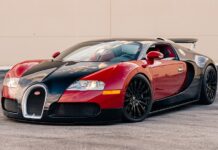When Andrew Fankel started doing this job in 1988, Ferrari had not long before released a handy little device called the F40. It was not just the fastest Ferrari yet, it was the fastest road car from any mainstream manufacturer, ever, and the first indeed to boast a documented top speed on the sphincter-puckering side of 200 mph. It had 478 hp, a figure those of us too junior to be let loose in such weaponry regarded with slack-jawed awe. Spool forward 30 something years to the launch of the SF90, another twin-turbo, mid-engine, two seat V-8 Ferrari. This one has 986 hp!
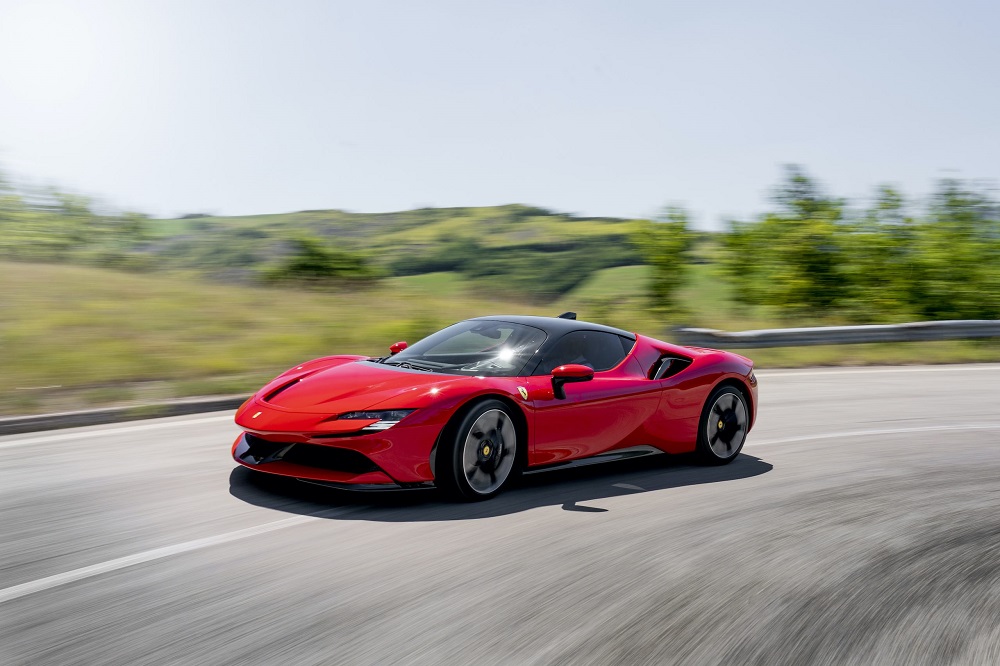
What is so staggering about this number is that the SF90 Stradale is not that same breed of limited automotive exotica like the F40 and its descendants, the F50, Enzo, and LaFerrari. It is as mainstream a Ferrari model as an 812 Superfast, whose production numbers will be, to a degree, limited by demand alone.
The SF90 has no fewer than three electric motors, one where you might expect between the 4.0-liter V-8 and its eight-speed dual-clutch transmission, and two more on the front axle, each driving a front wheel. They not only produce 220 hp but allow active torque vectoring across the front axle, and their ability to turn backwards obviates the need for a reverse gear. Clever stuff.
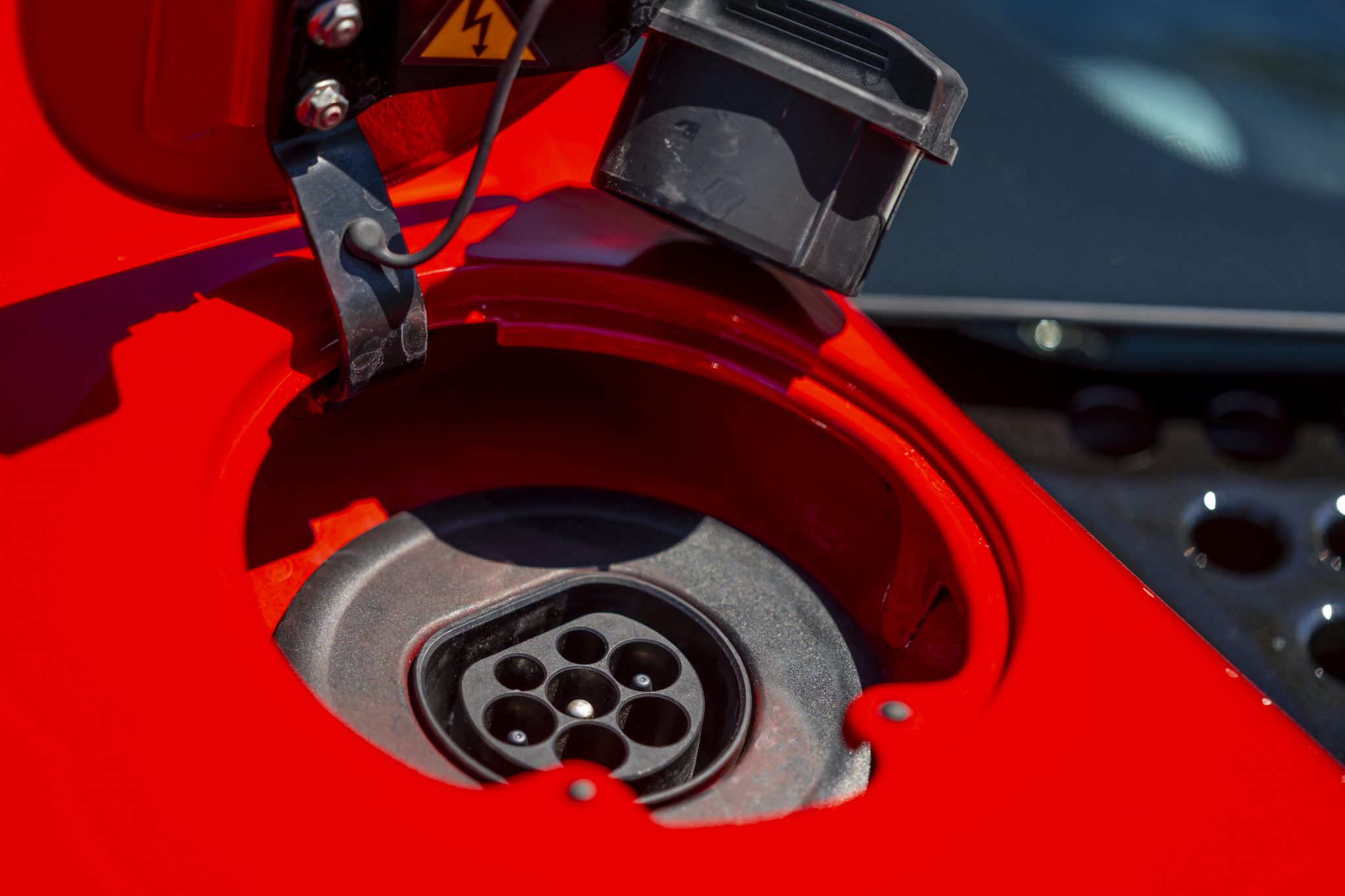
The platform is largely aluminum and distantly derived from that which has underpinned the 458, 488, and F8 supercars for the last decade, but this version is unique to the SF90 and features a carbon-fiber rear bulkhead. Bodywork is mostly aluminum, too.
It’s heavy, too, certainly relative to what it might weigh were it its architecture and panels made from carbon fiber. Ferrari claims 3461 pounds, but that’s a “dry” car with all the lightest options (of which there are plenty) fitted. For a more traditional curb weight of a standard car you could add 400 pounds to that figure, at least.
Nevertheless, don’t expect said heft to materially affect the manner in which the SF90 launches off the line. Ferrari quotes a 0-60 mph of 2.5 seconds, a time limited not by power nor weight, but traction and, of course, your stomach’s ability to keep hold of your breakfast. Acceleration like that is a pretty bewildering, slightly violent and substantially unsettling experience. Acceleration would be quicker still the car could put more power up front, as the entire output of the internal combustion engine still goes through the rear wheels alone.
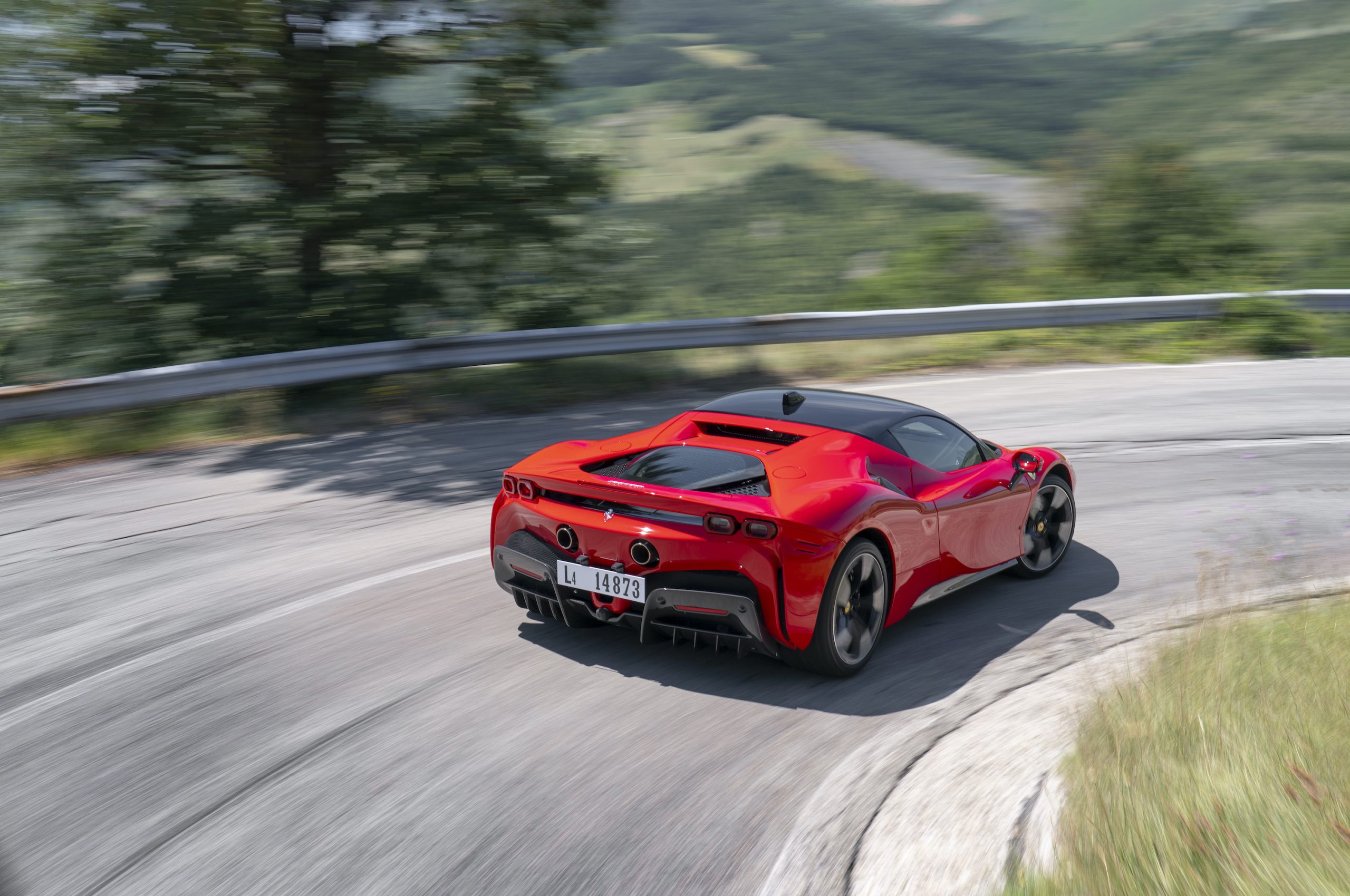
Amid this insanity, you sit cocooned in the most organized workspace ever to grace the interior of a Ferrari. Pay extra attention now, because if my source is correct—and it is—you’ll be seeing versions of this new driving environment being rolled out across far more affordable Ferraris in the future. At its heart lies a large curved screen, and if your heart is now sinking at the idea of just how complex, counter-intuitive and hair-rippingly infuriating a digital dash by Ferrari sounds, you should relax. It’s brilliant. The graphics are beautiful, the functionality (largely via a haptic touchpad on the steering wheel) better than you could hope.
Which is one reason the SF90 is so easy to drive. Another is that the thing is so damn quiet and comfortable, and that’s putting aside the pure electric drive mode. Select “bumpy road” mode on the little manettino controller, tug a paddle until it’s in its eighth and final gear, and you’ll find the SF90 has superb ride and refinement. It’s a car in which you want to travel not hundreds, but thousands of miles.
Alas, you can’t. The SF90 has so little luggage space you’d be forgiven for thinking that Ferrari got so carried away by the idea of an electric front axle it simply forgot about where you’re supposed to store stuff. The trunk is less than one quarter the size of that provided by the 812 Superfast. The choice is stark for those wanting to spend more than a day or two on the road: find a way to send your luggage ahead, drive solo and pile it up on the passenger seat, take another car instead, or just don’t go.
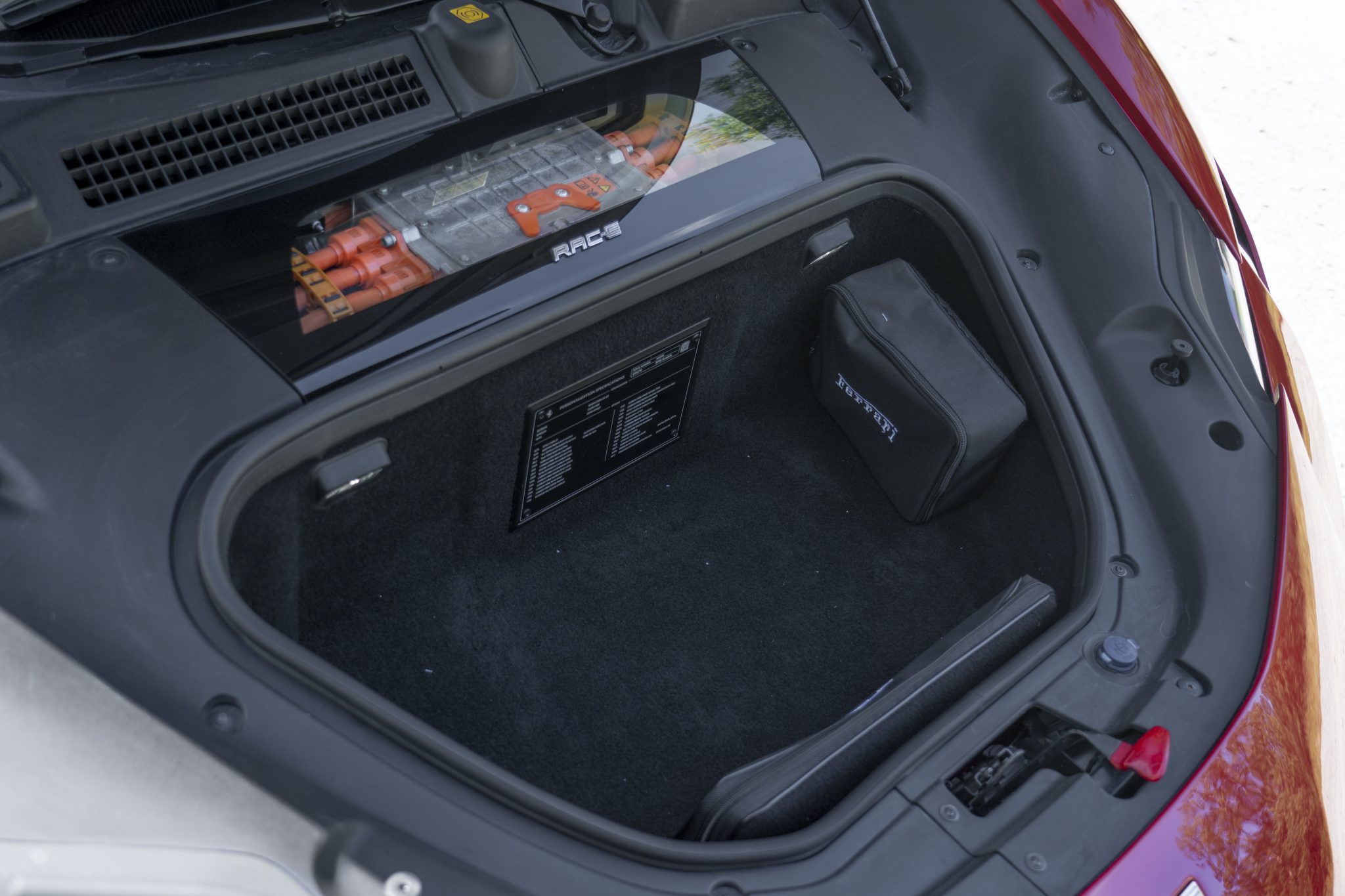
It’s a significant flaw and a substantial pity, because the SF90 is not only effortless on the way to the great roads, but it’s incredible on arrival, too. It lets you choose what kind of car it should be. In default “Sport” mode it’s quite defensive, soft of response and childishly easy to drive fast. Upgrade to “Race” and it’s switchblade sharp but so tidy it smooths away every rough edge in your driving. This is the configuration in which most people will be quickest most of the time.
Next round the dial is “CT off,” which disables the traction control but retains some semblance of stability control as a last line of defense. Curious that this is the mode you’d only adopt it if you wanted to drift the car, but the SF90 will only let you do that if you drive it a certain way. Try to unsettle the car and that front axle will take over and just pull you out of the corner. If you’re smooth about it, though, the computers will conclude—rightly or wrongly—that you know what you’re doing and oversteer until you’re out of opposite lock. I chose only to drive it at that angle of attack on the track, because you never know how other road users might react to the sight of a scarlet Ferrari at 45 degrees. It’s nevertheless laughably easy to do. So when you read all those other have-a-go heroes telling you how they tamed the beast, just remember there is huge skill in getting a car like an SF90 to behave like that, but it belongs not the person driving it but the software engineers who programmed it.
Only when you reach the last setting, which turns everything off and yields an SF90 stripped of all its myriad protection layers, can you say that as a driver you’re actually earning your living, for it will keep you very busy indeed.
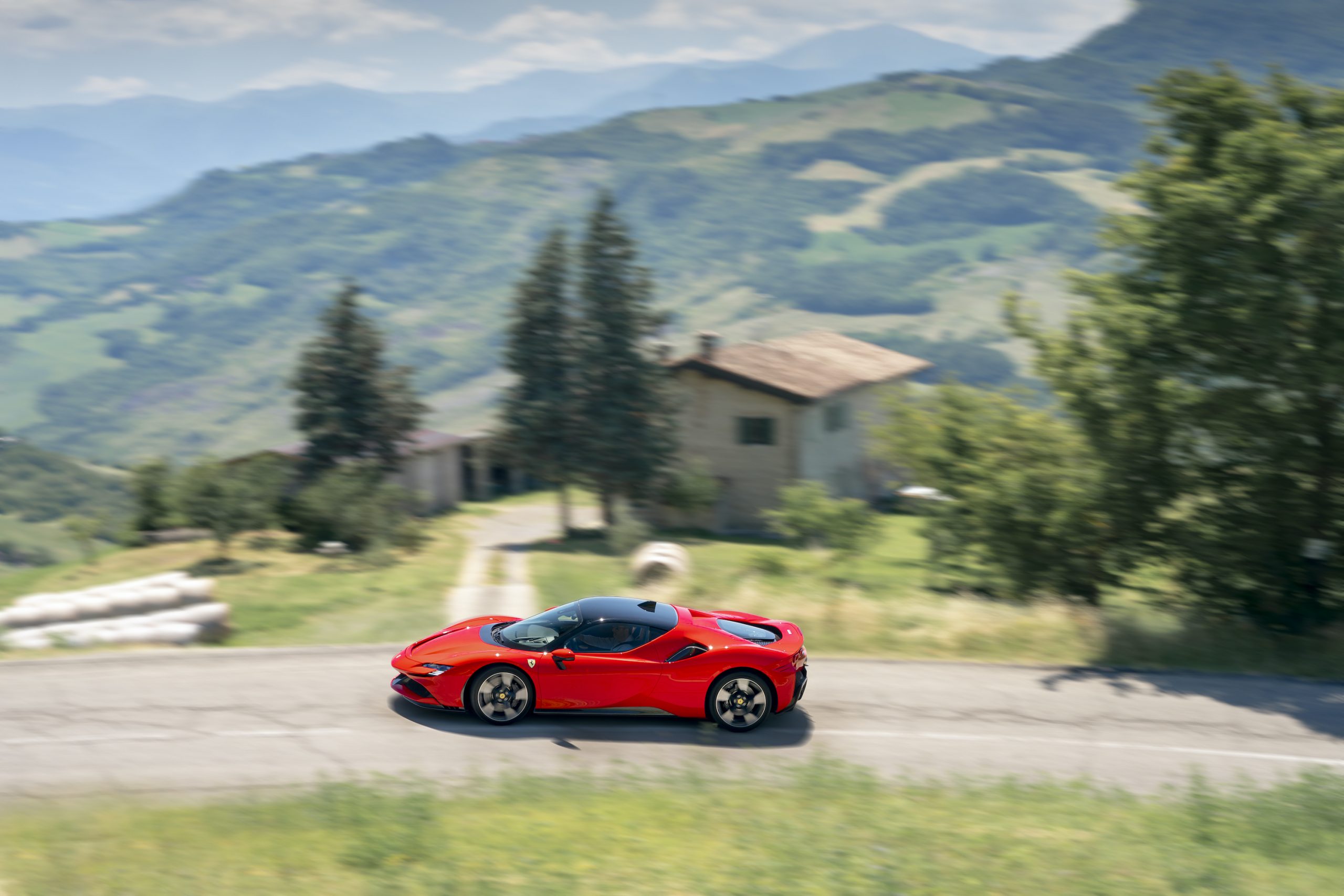
2021 Ferrari SF90 Stradale
Base price: $511,050
Layout: 2-door, 2-passenger, mid-engine, all-wheel-drive coupe
Engine: 4.0-liter DOHC twin-turbo V-8, 769 hp, 590 lb-ft; two electric front motors, each 133 hp and 63 lb-ft; one rear electric motor, 201 hp, 196 lb-ft; total system output 986 hp
Transmission: Eight-speed dual-clutch automatic



